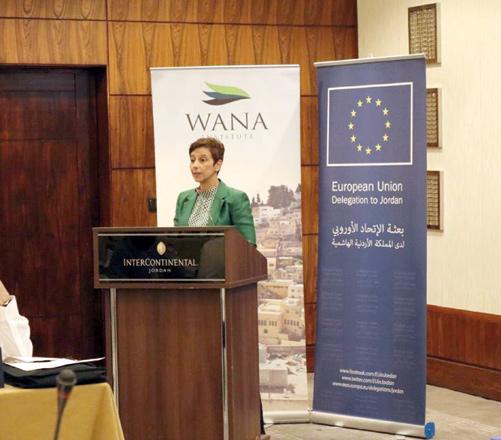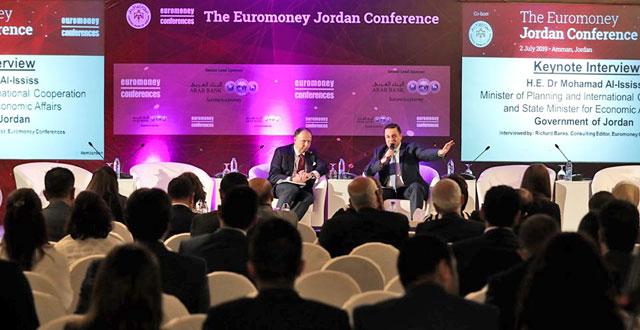You are here
WANA panel discusses challenges, prospects of EU-Jordan trade
By JT - Oct 26,2021 - Last updated at Oct 26,2021
AMMAN () — The West Asia-North Africa (WANA) Institute on Wednesday hosted an event on the current challenges of EU-Jordan trade relations and prospects for expanding them.
The event is a EuroMeSCo Back to the Field Session, “Towards More Robust EU-Jordan Trade: Challenges and Prospects” which aims to bring together expert stakeholders from the EU-Jordan trade community, said a WANA statement.
The WANA Institute held the session with a focus on trade cooperation through an open and evidence-based dialogue on the dimensions of EU-Jordan trade and the main obstacles for growth.
The event brought together Jordanian and EU government officials, as well as private sector stakeholders who work in promoting Jordanian exports to the EU.
The contributors discussed a range of issues concerning the current strengths and limitations of the trade relationship, including existing trade agreements, EU demand for Jordanian products, and Jordanian export marketing strategies. The event devoted special discussion to Jordan’s apparel, pharmaceutical, and fresh produce industries.
In her opening remarks, Sirpa Tulla, head of Economic, Infrastructure and Trade Facilitation at the EU delegation to Jordan emphasised the strong EU-Jordanian ties. “The EU-Jordan partnership priorities are to be renewed shortly and we start a new budget cycle of our development cooperation. A stronger, more inclusive and sustainable trade and investment partnership with Jordan is a paramount interest to us,” Tulla said.
Omar Rifai, director-general of WANA heralded the dialogue as an important step towards reaching the EU and Jordan’s highest objectives in trade and mutual prosperity.
The event’s moderator, Kareem Sharabi, presented findings from the EuroMeSCo survey conducted earlier this year, which asked Jordanians, along with other respondents in the EU and MENA regions about their expectations of interregional relations.
Most Jordanian respondents answered that the EU’s added value compared to other global players was its contribution to sustainable and inclusive economic development.
Sharabi mentioned that the persistence of the high trade deficit between the two parties even after the latest trade agreements indicates the need to better identify current limitations, a main objective of the event.
Related Articles
AMMAN — The European Union on Monday reaffirmed its commitment to strengthening its strategic relationship with Jordan during a country even
AMMAN — In order to work towards a more sustainable economy, Jordan needs to focus on cost reduction, the growth of exports and the labour m
AMMAN — “Start-up Battle JO” has recently returned to Amman after a tour through Irbid, Karak, Zarqa and Aqaba, to host competitions among y

















